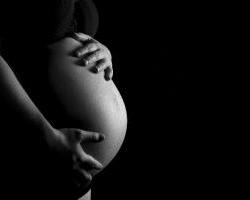Bulimia and Pregnancy
 Although Bulimia can impact both men and women, females of childbearing years are most frequently affected. Bulimia places the health of both the mother and her unborn baby at risk.
Although Bulimia can impact both men and women, females of childbearing years are most frequently affected. Bulimia places the health of both the mother and her unborn baby at risk.
Approximately 50 % of bulimic women do not have a regular menstrual cycle. This is a result of poor nutrition, intense exercise, or overwhelming psychological stress. Getting pregnant is extremely challenging for women struggling with an eating disorder, since irregular periods adversely affect a woman’s fertility, and reduce the likelihood of being able to conceive.
Bulimia during pregnancy causes severe implications for the fetus. Delayed growth and development, fetal abnormalities, or even stillbirth and death can occur. The repercussions for pregnant women are also serious, and include premature labor, increased risk of cesarean section, gestational diabetes, preeclampsia, postpartum depression, miscarriage, and complications during labor. The newborn baby may suffer from low birth weight, respiratory distress, or nutritional difficulties since bulimic women are more likely to struggle with breastfeeding.
Nine months of pregnancy can have a great psychological bearing on women suffering from an eating disorder, as they struggle with changing body image, weight gain, and the physical demands of a growing fetus. In fact, pregnancy can cause an increase in bulimic symptoms. Binge eating may result in excess weight gain, purging through vomiting may restrict vital nutrients and fluids, and using diuretics and laxatives may cause harm to the developing fetus.
There is help and support for women who may be pregnant, and suffering from bulimia or any other eating disorder. Getting bulimia treatment and seeking medical and nutritional assistance can help manage weight and maintain health throughout pregnancy, resulting in a positive outcome for mother and baby.
 Eating Disorder Self Test. Take the EAT-26 self test to see if you might have eating disorder symptoms that might require professional evaluation. All answers are confidential.
Eating Disorder Self Test. Take the EAT-26 self test to see if you might have eating disorder symptoms that might require professional evaluation. All answers are confidential.